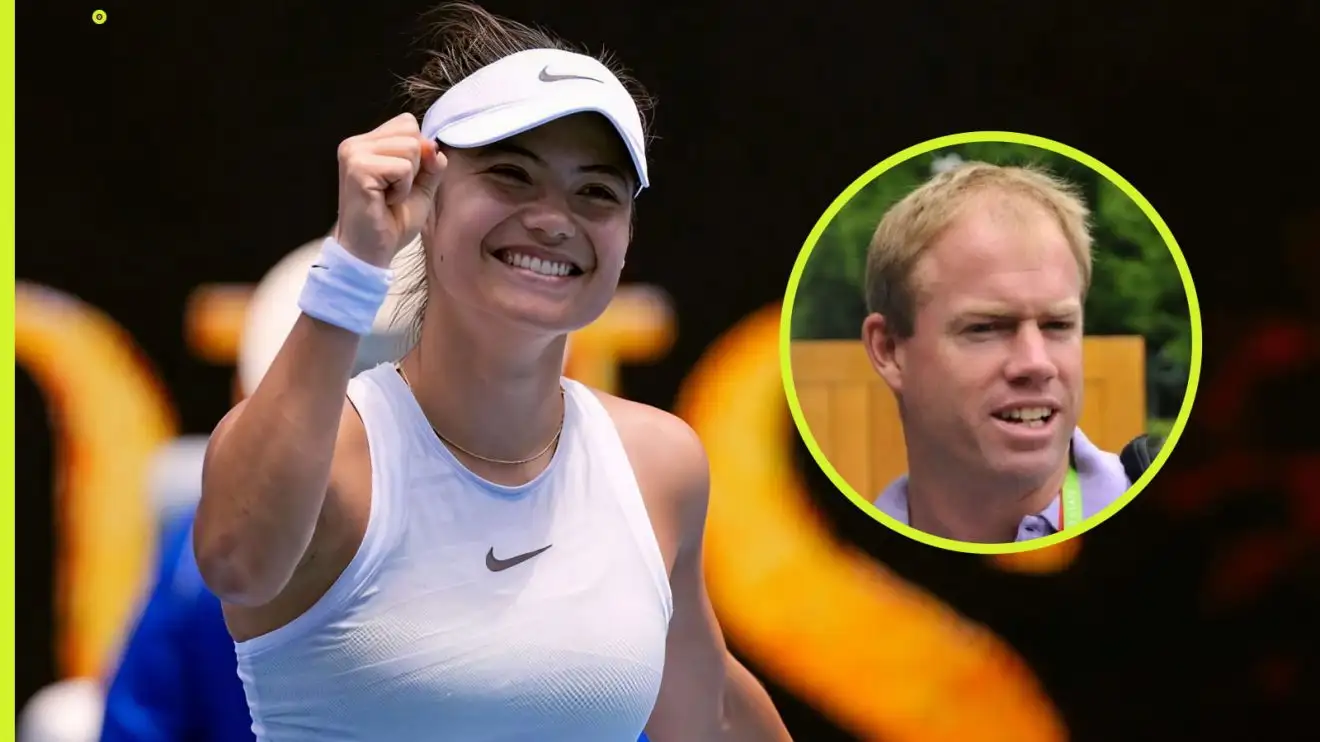
Emma Raducanu, the 2021 US Open champion, is at a pivotal moment in her career as she navigates the clay courts of the 2025 Madrid Open, her first tournament on the surface this season. The 22-year-old British star has sparked intrigue with her latest coaching arrangement, hinting at a potential long-term partnership with Mark Petchey, a respected figure who once guided Andy Murray to his first ATP title. However, as discussions deepen, a significant obstacle looms: Petchey’s commitments to the Tennis Channel, which could limit his availability and test Raducanu’s quest for stability in her coaching setup. Her candid reflections, including, “For the moment, it’s working,” underscore a cautious optimism as she balances trust, flexibility, and the demands of her comeback.
Raducanu’s journey since her Flushing Meadows triumph has been a rollercoaster of injuries, coaching changes, and intense scrutiny. After parting ways with Nick Cavaday in January 2025 due to his health issues, she briefly trialed Slovakian coach Vlado Platenik, only to end the collaboration after two weeks, citing stress and a lack of chemistry. “He is a great coach. He’s so experienced. It just wasn’t right at the time,” Raducanu said, emphasizing her need for a collaborative dynamic. Her Miami Open quarter-final run in March, guided by Petchey and childhood mentor Jane O’Donoghue, marked a high point, with Raducanu noting, “I wasn’t necessarily feeling great about my tennis, but this week I have some really good people around me who I trust and who I have fun with off the court.” The result—a career-best WTA 1000 quarter-final—reignited hopes of recapturing her Grand Slam form.
Petchey, a former top-100 player, brings a wealth of experience and a prior connection with Raducanu, having trained with her during the 2020 pandemic. “He’s someone I feel I can trust because I’ve known him so long,” she told reporters, praising their “thought-provoking, interesting conversations” that blend tactical work with off-court rapport. Their recent 10-day training block in Los Angeles focused on refining her serve and adapting to clay’s demands, a surface she admitted needs more time: “I’ve always said this can be a good surface for me—I just need more time on it.” Petchey’s availability during the grass-court season, including Wimbledon, aligns with Raducanu’s strengths, but his Tennis Channel duties, covering events like the Billie Jean King Cup and Davis Cup, pose a challenge for a full-time role.
Raducanu’s coaching carousel—eight coaches in four years, including Nigel Sears, Andrew Richardson, and Torben Beltz—has drawn criticism, but she remains unapologetic. “Every decision I make is made on such a big scale that it’s up for judgement,” she confessed, emphasizing her need to “get to a place where I’m comfortable enough… that it doesn’t matter what other people are saying.” Her current informal setup with Petchey reflects this mindset, prioritizing flexibility over a rigid contract. Tim Henman, a mentor and Laver Cup vice-captain, endorsed the pairing, noting Petchey “knows Emma’s game,” but cautioned, “It’ll be interesting to see how long it lasts for.”
As Raducanu prepares to face either Jule Niemeier or Wang Xiyu in Madrid’s first round, her focus is on building momentum for the French Open. Her withdrawal from the Billie Jean King Cup qualifiers to manage her workload highlights a strategic approach to her injury-prone career. With fitness trainer Yutaka Nakamura bolstering her physical resilience, the coaching decision looms large. Can Petchey’s expertise and their mutual trust overcome his broadcasting commitments? For now, Raducanu’s pragmatic shrug—“For the moment, it’s working”—captures her determination to carve her own path, one point at a time, on the road to rediscovering her sparkle.
Leave a Reply